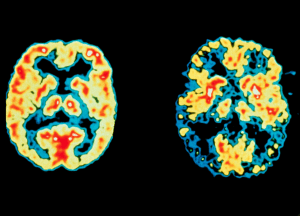
Roche’s Ocrevus more effective than Merck’s Rebif, company claims
pharmafile | September 14, 2016 | News story | Research and Development | Merck, Ocrevus, Rebif, Roche, multiple sclerosis
Roche has announced new results from the Phase III studies of investigational medicine Ocrevus (ocrelizumab) studying relapsing multiple sclerosis (RMS) and primary progressive multiple sclerosis (PPMS). The data will be presented during the 32nd congress of the European Committee for Treatment and Research in Multiple Sclerosis (ECTRIMS) this week in London.
In the trials, two composite endpoints measured disease control using a combination of clinical and MRI outcomes: No Evidence of Disease Activity (NEDA) in patients with RMS and No Evidence of Progression (NEP) in patients with PPMS. A NEDA analysis of pooled data from the studies compared no evidence of disease activity during different time periods over two years of study.
The data showed that Ocrevus significantly increased the proportion of RMS patients achieving NEDA by 75% compared with rival Merck’s Rebif (interferon beta-1a) over 96 weeks. Additionally, 47% higher proportion of PPMS patients achieved NEP with the treatment compared with placebo.
“Controlling clinical and sub-clinical disease activity as early as possible is an important treatment goal for people living with MS,” said professor Gavin Giovannoni, Scientific Steering Committee Member of the studies and chair of neurology at Barts and The London School of Medicine and Dentistry. “These new data suggest that ocrelizumab consistently impacts disease progression and has the potential to change how we approach treating both relapsing and primary progressive MS.”
The treatment was given drug breakthrough status and fast-tracked by the FDA earlier this year, causing Roche to accelerate its timeline. According to Thomson Reuters, the product could generate up to $4.09 billion by 2022.
“With no approved treatment options, primary progressive MS remains a challenge for physicians and people with MS,” said Xavier Montalban, professor of neurology and neuroimmunology at Vall d’Hebron University Hospital, Research Institute and Cemcat in Barcelona, Spain. “Ocrevus significantly impacted three key disability measurements, which further highlight its clinical significance in people with primary progressive MS.”
Matt Fellows
Related Content

Roche receives CE Mark for blood test to help rule out Alzheimer’s
Roche has been granted CE Mark approval for its Elecsys pTau181 test, the first in …

Roche candidate shows early promise for treating haemophilia A
Roche has announced encouraging early results from its phase 1/2 trial of NXT007, an investigational …

Roche advances treatment for Parkinson’s disease
Swiss biopharma, Roche, has announced its decision to proceed with phase 3 trials of prasinezumab, …






